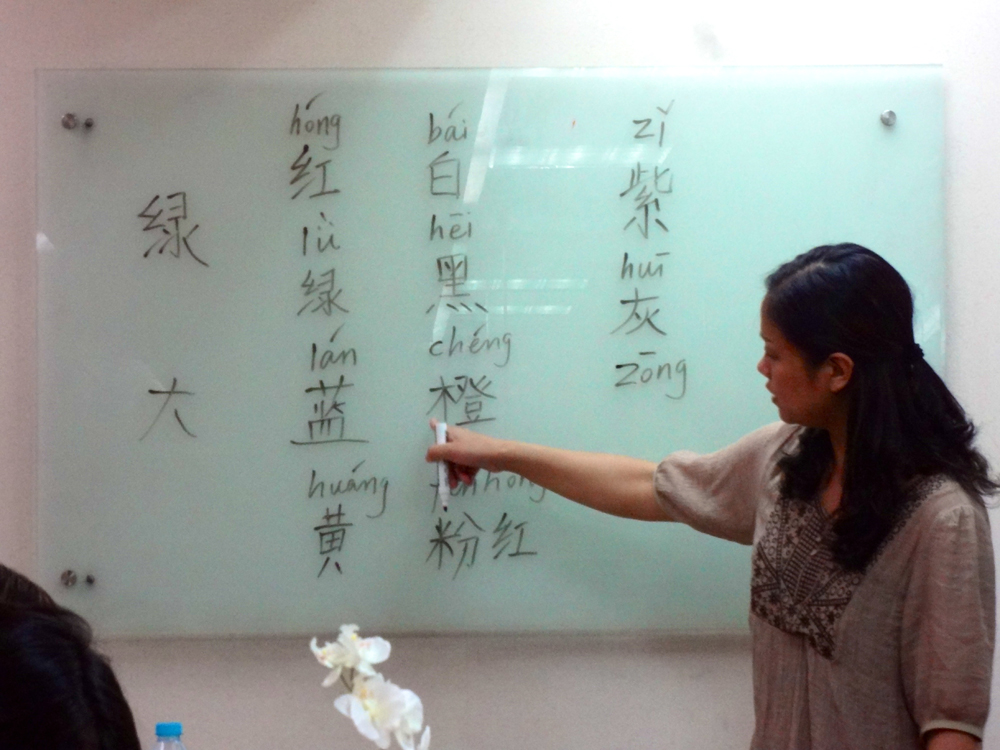
My laoshi (teacher) from Mandarin House teaching us our colors in Chinese!
Greetings from Shanghai, China–the city of inspiration! It has been my extreme pleasure to spend the last two months in this enormous, fast-paced, breathtaking city, the largest proper by population in the world. This was my second time going to a country by myself, and each time I surprised by the intensity of the culture shock–and the shock to emotion.
So, over the course of these next several blog posts, it is my goal to help you manage your transition from America to Shanghai. I loved my time in China, but I understand (and went through) many of the difficulties associated with moving to such a different environment. I hope that my experiences–some triumphs, some travails–will help you with your journey to the Far East.
A great place to start is with some of the words you really need to know before you get to China. I spent my first month in China studying Mandarin Chinese (the language understood by the Chinese people of Shanghai). This is a great start to communicating with the locals and many millions of people in the world’s most populous country. I do have to warn you though: Mandarin is only one of the languages spoken in China–Mandarin and Cantonese are the two predominate languages, but the people in Shanghai speak a variation of Mandarin known as Shanghainese. In addition, a huge number of people you will probably be communicating with in China are expats (short for expatriates, people who have emigrated from their home country and now live in a foreign country). These expats are from all over Asia, Europe, and the Americas, and there are a large number of restaurants and social events geared toward this group.
Regardless of where a person comes from or what their native tongue, I found most people living in Shanghai were able to understand either Mandarin or English–so you’re in luck. Most expats understand some English, but you will need some Mandarin for basic communication with the local Shanghai population. Since you are coming from the University of Louisville, you’re good on the English side of things; the Mandarin, on the other hand, might be a little more difficult!
I won’t lie to you–Mandarin is an incredibly difficult language, especially for native English speakers. Mandarin does not share a language root with English, and therefore grammar and sentence structure is impressively different. It takes about four years of intense study to be certified fluent in Mandarin, but there are a couple words that can help you get around.
|
PIN YIN (Chinese with English letters) |
ENGLISH PRONUNCIATION |
MEANING |
|
Ni Hao |
Nee How |
Hello |
|
Zaijian |
Z-eye Gee-in |
Goodbye/See You Again |
|
Xiexie |
She-ay She-ay |
Thank You |
|
Bu Keqi |
Boo Ke-chee |
You’re Welcome |
|
Hao |
How |
Good/Fine/Okay |
|
Kuai |
Kw-eye |
Cash/Money |